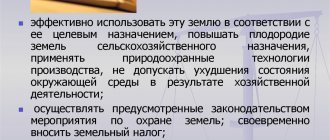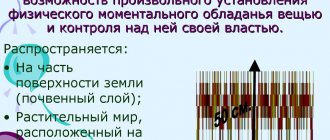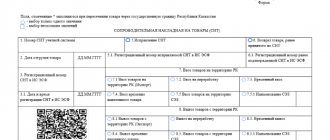One of the most pressing topics in Russia today is inheritance. Sooner or later, every citizen may be faced with the need to accept ownership rights to the property of a deceased citizen. In addition, before joining, you will need to incur some expenses. It should also be noted that many compatriots do not have a general idea of what exactly, according to the law, will be transferred to them after the death of their relative. In this case, it is necessary to consider in detail the composition of the inheritance.
Which property objects belong to it, and which cannot be included in the list of the inherited mass due to the established restrictions by the current legislation of the Russian Federation.
General concept of hereditary mass
The composition of the inheritance (inheritance mass) is all the property of the deceased citizen, as well as his obligations that he did not manage to fully fulfill during his lifetime. Provided that the testator and successor die at the same time (for example, in a car accident), then all their property is distributed between separate categories of heirs depending on kinship, if during their lifetime both citizens did not have time to write the appropriate wills to transfer property rights to certain persons.
As a rule, the composition of the hereditary estate, which is transferred to a successor or distributed among several heirs at once, includes the following property objects, as well as material assets and obligations:
- Things, property, real estate, cash, as well as securities of a deceased relative;
- Various property rights that were included in the intellectual property rights of a deceased citizen;
- Obligations of the deceased, which include debts on property taxes, debts on utility bills, as well as outstanding loans;
Important. If the deceased during his lifetime began to register certain rights to property, cash deposits, or other things, but did not have time to complete the registration actions, then all this is also included in the inheritance mass.
After accepting ownership rights, the successor has the right to complete the appropriate registration, but in his own name.
Opening an inheritance
Heirs need to understand that the composition of the inheritance mass is determined precisely at the time of the death of the testator. Until that time, a person can own any property, use it, and make transactions not prohibited by law. For example, sell/donate an apartment.
If the transaction was completed on the eve of the death of a citizen, then the alienated property is no longer included in the list of inheritance. Therefore, it does not matter what assets a person has during his lifetime. The starting point is the death of the testator.
What to do if a person is declared dead by a court decision? This fact gives rise to similar legal consequences. The only difference is the date of death. It can be accurate or estimated (Article 1114 of the Civil Code of the Russian Federation). However, the countdown of time begins from the moment the procedural act enters into legal force.
Previously, heirs had to go to court twice:
- Initially, an application was submitted to declare the citizen dead.
- A repeated appeal was submitted to extend the period for registration of inheritance.
The changes made to the law eliminated legal imperfections. Citizens are given 6 months from the date the court decision enters into force. Missing deadlines leads to loss of property rights.
What objects of inheritance can there be?
Often, before making an application to a notary with a corresponding statement, successors naturally ask themselves what objects that belonged to a deceased relative can be included in the inheritance. As practice shows, completely different property can be included in the inheritance mass. Let's consider the most common objects of property that are included in the inheritance mass:
- Any real estate that belonged to the deceased as a property (apartments, dachas, land plots, as well as real estate not intended for residence - garages, special buildings, barns, bathhouses);
- Movable property that was directly owned by a deceased relative (vehicles, furniture, various household appliances, cash, dividends, as well as bank deposits).
All these property objects are included in the inheritance mass, and after the death of the testator they pass to his successors on the basis of law, or by will, if it was previously executed and is with a notary. In this case, the inheritance case is opened in the office where the document was drawn up.
Important. Before the successor receives the right to inherit, all the property of the deceased is assessed. Market, inventory, and cadastral values can be used here. Based on these values, the notary withholds the corresponding notary fee (state fee) from the successor. In this case, the heir must independently choose from what amount the amount of the fee charged will be formed.
One should also take into account the fact that all the property of the deceased, which is transferred to the successor, can be accepted in full or divided among the heirs in accordance with the degree of relationship. It is not possible to receive part of the inheritance (for example, the successor will not be able to take ownership of the apartment and refuse to encumber it with debts for utilities or property taxes).
In the event that the heir is not satisfied with the composition of the inheritance, he has the right to write an application for refusal to transfer to him the ownership rights to all the property of the deceased relative. In this case, the form will need to indicate in whose favor the citizen is refusing (the refusal can only be made in favor of successors who, according to law or will, are included in the circle of heirs). That is why, before applying for acceptance of the inheritance, you should evaluate all the property of the deceased, as well as your financial capabilities.
A citizen also has the right to write a refusal after entering into an inheritance, but for this purpose an application to the court is made with a corresponding claim.
Once the property is abandoned, it will be impossible to reverse the procedure.
Features of taxation
It is generally accepted that taxes are not charged upon entry. This is partly true, if you don’t take into account the “hidden” fees. The duty is calculated taking into account the cost of the resulting mass. At the same time, close relatives pay half as much – only 0.3%. For other relatives and third parties, the rate increases to 0.6%. But there are limits on amounts. Ask your legal consultants about maximum amounts and possible benefits.
People who do not want to accept the inheritance and the responsibilities that come with it decide to sell the inheritance. This action is not prohibited. But if acceptance is a gratuitous transaction, then resale involves the receipt of money, and therefore is recognized as compensated. The state taxes the seller on income. Evasion may result in fines. And if they prove that there is collusion, these actions border on fraud. The result is criminal liability and, accordingly, imprisonment.
Citizens of Russia pay the usual personal income tax rate, which for individuals is equal to 13% of the cost of the mass sold. Non-residents selling inherited assets transfer much more – 30%. Taxation does not apply to all objects. Therefore, when we talk about the inheritance mass, we mean a set of objects that require registration with state accounting organizations.
What objects are subject to income tax?
There is a clear list according to which the inherited estate is subject to taxes. This happens if it is formed from an apartment, land, other real estate, as well as a car. A special category is securities (stocks, bonds, bills, etc.), in this case the source of income is accepted. However, it becomes impossible to estimate the value taking into account the constant fluctuations in stock market odds. Therefore, personal income tax is taken from the profit itself (dividends).
But you should not think that there will be no other costs, and if taxation is not affected, you can receive the inheritance for free. Every action of a notary or court costs money. Submission of an application is accompanied by payment of a state fee. Any lost document is restored. But the issuance of a duplicate is also carried out after presentation of a receipt for payment of the state. duties. It turns out that even if there is no income tax, indirect fees will have to be paid.
What does not apply to the hereditary mass
Not all rights and property that were at the disposal of a deceased citizen can be inherited by successors. Property rights can be transferred to heirs only on legal grounds, as reflected in the relevant regulatory legal acts of the Russian Federation. In accordance with the Civil Code of the Russian Federation, the successor will not be able to inherit objects or rights, provided that they were closely related to the testator.
In this case, the following rights and obligations cannot be transferred to heirs after the death of a citizen:
- The right to claim alimony (support for minor children), as well as the obligation to pay it for the deceased;
- Rights, as well as obligations of a deceased citizen, provided that they arise from gratuitous contracts of use or guarantee;
- Various tax benefits and provision of financial assistance in the form of government subsidies;
- Also, the successors do not accept the inheritance obligation to compensate for the health damage caused by the deceased to other citizens.
For example, if during his lifetime a citizen was entitled to compensation after termination of employment agreements with the employer, then this right cannot be inherited by his successors.
A complete list of rights and obligations that cannot be included in the inheritance are reflected in the provisions of Russian legislation.
Currently, quite a lot of controversy is flaring up around the transfer of inheritance of debts from testators. Many successors are extremely dissatisfied with the fact that after the death of a relative, the latter’s obligations for loans and other accumulated debts are transferred to them.
However, it should be understood that debts are inherited exclusively in accordance with the provisions of the legislation in force on the territory of the Russian Federation. Other encumbrances that the deceased had, but did not have a corresponding civil contract, cannot be transferred to the successor.
The same applies to alimony obligations. If they are present, then no one has the right to oblige the heir to pay for the maintenance of the child of the deceased citizen. The same is the case when bailiffs in enforcement proceedings have accumulated debt due to non-payment of maintenance funds. Immediately after the death of a citizen, such debts are canceled and enforcement proceedings are closed.
If the testator received any copyrights during his lifetime, they cannot be inherited in accordance with this legislation. Successors have the right to claim royalties, as well as reprints or reissues. Copyright cannot be transferred to successors by inheritance, since it is inextricably linked with the personality of the deceased citizen, and such a transfer would be contrary to the legislation of the Russian Federation.
Also, the organization’s brand cannot be transferred to the inheritance that is transferred to the successors, provided that the name includes a name that is inextricably linked with the personality of the deceased citizen, however, the heirs have the right to relaunch the company under a new brand or arrange for its relaunch.
Non-inheritable rights
It is necessary to know not only about exceptions in the right of inheritance. Thus, in addition to what was listed earlier, the inheritance does not include pension accruals (except for those that the deceased did not manage to receive), lease and rental agreements for housing, obligations to member cooperatives, as well as vehicles that were issued to a disabled person out of necessity, but the right to use them family members can inherit.
Moreover, when the testator, during his lifetime, executed an insurance contract, indicating as the recipient of the monetary payment a stranger or a relative who is not one of the primary heirs, the rule of will applies. That is, the funds will actually be received by the specified person and no one else.
There are also some payments that are not included in the estate, but special conditions allow family members to receive them in equal shares (childbirth benefit, assigned during life and lost wages).
You cannot inherit municipal housing and other state real estate, even if the testator has used it all his life and has no other property. It will also not be possible to inherit real estate that was illegally built and not registered.
Certain types of property objects
There is a part of the property that is inherited not in the general order, but on special grounds. Here, the current legislation provides for some features when transferring ownership rights to such property objects. Let's look at the main examples:
- During his lifetime, the citizen was allocated a vehicle on preferential terms, or for a lower fee, while such property will be transferred to successors as part of the general inheritance;
- Various memorable awards from the state that do not belong to the unified award system provided for by the Decree of the President of the Russian Federation may be transferred to successors on a general basis;
- State awards, orders, commemorative medals that are directly related to the unified award system of the Russian Federation cannot be transferred to the disposal of successors;
- Provided that the testator managed to re-register ownership of municipal housing during his lifetime (privatized it), then it can be inherited on a general basis.
If municipal housing was not privatized, but was allocated to a citizen for lifelong free use, then the heirs will be able to receive it only by court decision, and they will need to prove the fact of free provision for life.
Peculiarities of inheritance of jointly acquired property
The spouse of a deceased citizen has the primary right of ownership of the object of inheritance. First, 50% of the jointly acquired property is allocated from the total personal property of the deceased. This part of the property from the estate has a second name: the marital share.
According to current legislation, first the husband or wife acquires an obligatory part of the inheritance, and the remaining amount of property is evenly distributed among other legal successors.
Only citizens who entered into an official marriage with a now deceased citizen have the right to own part of the jointly acquired property. A common-law husband or wife will be able to claim anything only if they prove their dependency.
Transfer of a share of a joint stock company by inheritance
A share in a company or full management in a joint-stock company can also pass to the successors of the testator after his death, however, when transferring ownership rights, a certain procedure is provided, which is prescribed in the Civil Code of the Russian Federation, Article No. 1176. When registering a share of a joint-stock company as an inheritance, one must be guided precisely this document.
Here one should also take into account the fact that a certain time period is allotted for inheriting a block of shares; otherwise, the law provides for their equal distribution among other shareholders of the company.
Without fail, when inheriting a share of a joint stock company, the successor will need to prepare the necessary list of documents. In addition, if the heir does not want the shares of the deceased to be transferred to him, he can make an appeal to all shareholders with an offer to buy out the package of securities. More often than not, managers of large companies will be interested in such a proposal rather than in introducing an heir to the management team.
Necessary documents for succession of shares
In order to inherit shares of a certain company, the successor will be required to provide the following list of documentation:
- A form confirming an independent expert assessment, which confirms the value of the inherited shares in the company;
- Documents that will indicate that there was a family connection between the deceased and his successor;
- A will in which a third party is indicated to whom the testator entrusts the right to use his block of shares;
- An authentic extract from the register of the joint stock company in which the deceased citizen had a share of shares must be provided;
- Citizen's passport or other document that will confirm the identity of the successor;
- A corresponding application to the notary about the desire to receive ownership of part of the shares of the joint-stock company that previously belonged to the deceased.
After all the documents are provided to the notary and the state fee is paid, the successor is issued a certificate of transfer of ownership rights. Next, an application is made to the JSC register. After circulation, the shares are re-registered to the new owner.
It is worth noting that the successor is not obliged to personally make a request to the register of the joint-stock company; as a rule, this responsibility is assigned to the notary who conducts the inheritance case.
Who can be the heir
Legal heirs can be individuals who are alive on the day the inheritance is opened, or who were conceived during the life of the testator and born after the opening of the inheritance. Also, the state may be called upon to inherit an inheritance if the inheritance is recognized as escheatable property.
In addition to individuals, legal entities, municipalities, states, including foreign and international organizations can also be involved in inheritance under a will.
How does mass formation occur?
If the testator draws up a testamentary document, then it usually already describes all existing property and distributes shares for each successor. If inheritance is carried out according to law, then an inventory of the property is drawn up, which is done by a notary. During its holding, two witnesses and the heirs themselves must be present.
The inventory document contains the following information:
- List of available property.
- Detailed description of items and their cost.
- Papers that confirm the existence of ownership of objects.
At the end of the inventory, successors, witnesses and the notary himself must put their signatures. If the property was in the possession of a person authorized to ensure the safety of the property until it was distributed among the heirs, then his signature is also affixed.
In accordance with the received inventory, the lawyer divides the property and also sets the notary fee for each relative separately.
Documents for inheriting shares
Legal successors must provide:
- Original extract from the JSC register. The request must be drawn up by the notary himself and can already be submitted to the joint-stock company.
- Valuation of shares, which will be completed by a valuation expert.
- Kinship documents or marriage certificate.
After submitting the documents, the notary will issue a certificate of inheritance, which must be presented to the holder of the JSC register. He will re-register all inherited shares in the name of the heir.








